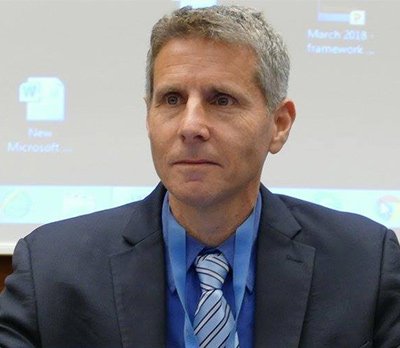
To begin Hebrew University’s fifth series of pandemic-related webinars on April 22, 2020, Prof. Yuval Shany addressed legal and constitutional issues in Israel triggered by the current pandemic. He set the stage, saying Israel had to wrestle with a particularly challenging situation because the threats to public health and the economy due to COVID-19 were unfolding against the backdrop of an unprecedented political and constitutional crisis. This after three inconclusive elections in less than a year, with the country being run by only an interim government since Dec. 2018 when Prime Minister Binyamin Netanyahu lost his parliamentary majority.
Prof. Shany, who holds the Hersch Lauterpacht Chair in Public International Law at Hebrew University and is the former Dean of HU’s Law Faculty, said that Israel, like other countries confronted with such an unprecedented national emergency, had to decide how to balance respecting personal liberties and human rights with safeguarding public health. While the consensus in Israel was that the response should be a question of proportionality, the jury is still out over how far a government should go in compromising people’s privacy and individual rights during an emergency.
Early on in the pandemic, the government, despite its limited democratic legitimacy due to its interim status, adopted harsh measures involving severe restrictions and intrusive surveillance, some applied more to the general population, other measures more narrowly enacted on those infected with COVID-19. Through emergency legislation, some that was challenged in court, identification of infected people and enforcement of confinement were done through the police and internal security services using digital technologies. Add to that, in mid-March, the justice minister suspended the courts although the Supreme Court still functioned, while a new parliament was convened amid a conflict between the old and new coalition leading to the departure of the Knesset Speaker.
So far, Prof. Shany said the government’s decisions on imposing a lockdown, social distancing and movement restrictions, which many found heavy-handed, seem to have been effective in flattening the curve in the spread of the coronavirus. As a result, this week the government began to loosen some of the restrictions. But a troubling question persists, he added, as to whether Israel has embarked on a scary, slippery slope now in creating the precedent of its spy agency with sophisticated invasive tools let loose on the country’s civilian population.
Earlier this week, the political and constitutional crisis eased significantly with the announcement that Netanyahu and Blue and White party leader Benny Gantz had agreed on the formation of a national emergency coalition government. It ended more than a year of political deadlock and coincided with the worst of the health crisis seeming to have passed and the country’s democratic institutions now mostly back in place.
Prof. Shany, who currently also serves as Vice-President for Research at the Israel Democracy Institute and as a member of the UN Human Rights Committee, said given that Israel lives in a perpetual state of emergency, it can lead to governments taking short cuts in responding to crises. He recommended that the best way forward for Israel, now that the political stalemate has been finally resolved, is to replace some of the recent emergency legislation with regular law-making.